In December, journalist and broadcaster Oriini Kaipara (Tūhoe, Ngāti Awa, Tūwharetoa and Ngāti Rangitihi), became the first wahine with a moko kauae to present primetime news, increasing the visibility of te ao Māori in a very literal way. She has said her moko kauae “shows my commitment to my Māori language, and I will be part of the revitalisation of my language and Māori customs.”
In her new Newshub Nation role, she’s “focused on ensuring Māori views and voices are heard.” We applaud Oriini – these are aims we can all be grateful for – they help us all to #breakthebias
10 Days of Heroines
Te Wāhi Wāhine o Tāmaki Makaurau / the Auckland Women's Centre are lucky to work with incredible wāhine every day. In our '10 Days of Heroines' series we are putting the spotlight on some of the incredible wāhine we have worked with recently, highlighting the wonderful mahi these women undertake in our community.
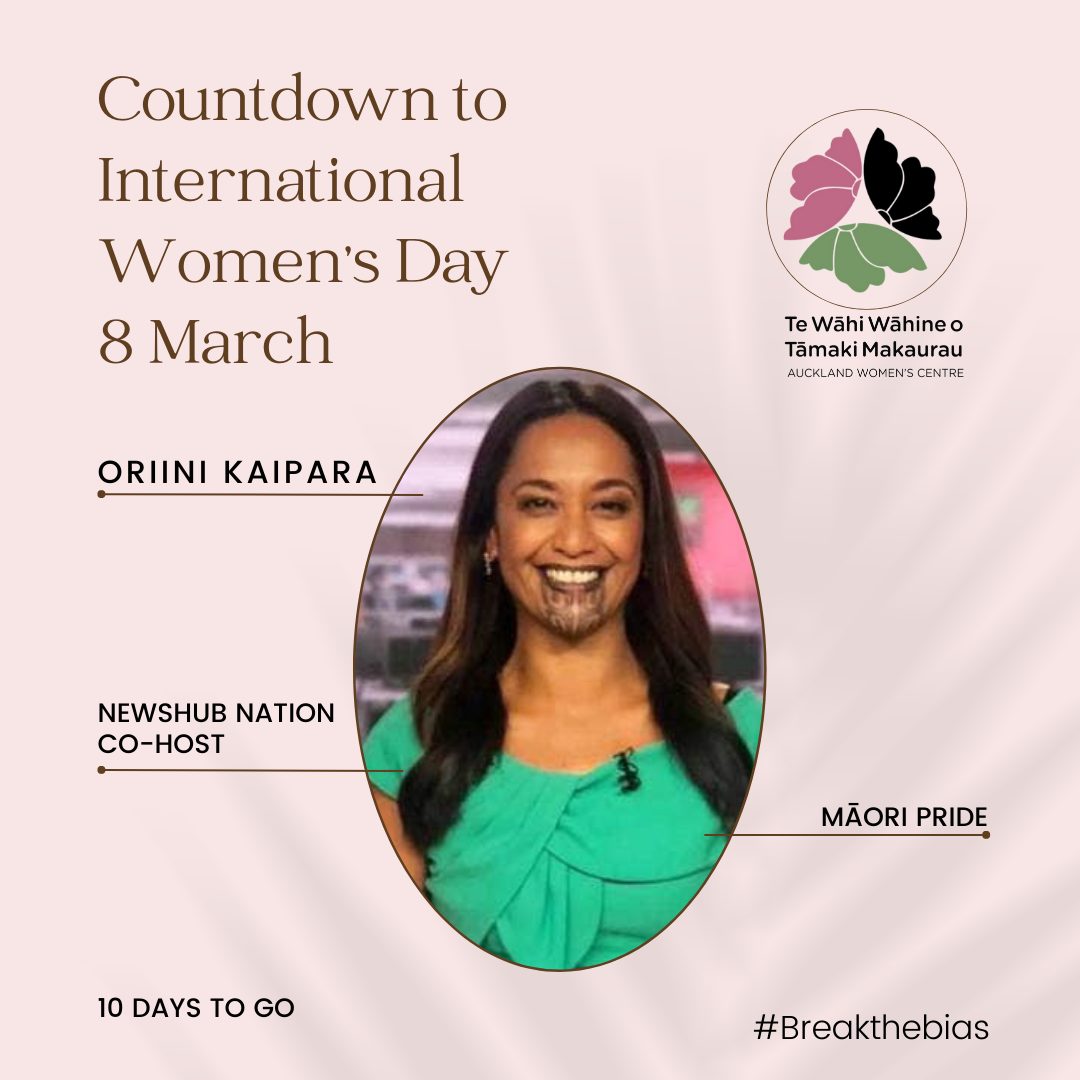
Oriini Kaipara

Anjum Rhama
Anjum Rahman and her community know all too well how dangerous bias is: it is nearly three years since a terrorist targeted Muslims and killed 53 people in the Christchurch attacks. Before then, Anjum and her fellow Islamic Women’s Council members had tried for many years with little success to get anyone in authority to take their security concerns seriously – because of the bias of those in power against them.
And yet, as well as holding those in power to account, Anjum has also started Inclusive Aotearoa Collective Tāhono, to research ways we can all feel we belong, “led by the belief we can build an inclusive society, founded on the partnership of Te Tiriti o Waitangi”. As well as pulling down harmful biases, Anjum is building up hope and better ideas in their place. It’s an incredible person who can do both these vital tasks, particularly during immense community pain and pressure. Anjum Rahman, we honour your incredible work and vision. Thank you for showing us how to #breakthebias and replace it with something better.

Dame Sophie Pascoe
On New Year’s Day, Sophie Pascoe became perhaps the youngest Dame ever – a testament to the paralympian’s achievements: 19 medals across four Paralympic Games, including three gold medals and one silver at the age of 15 in 2008 in Beijing. Those incredible achievements and Sophie’s high profile are helping to break society’s bias against disabled people but she’s also inspiringly open and honest about other challenges – such as ensuring, for her mental well-being, that she sees herself as more than just a swimmer. While being disabled doesn’t define her, she’s also learned that “reaching for the top of breaking world records, winning gold medals – that doesn’t define who you are” either. Instead, she’s learning to value different facets of her identity, such as relationships with friends and family. Thanks Dame Sophie, for opening the conversation about how we can #breakthebias not only for the people around us, but also in order to see ourselves in detail – in all our complex, messy wonderful human glory!
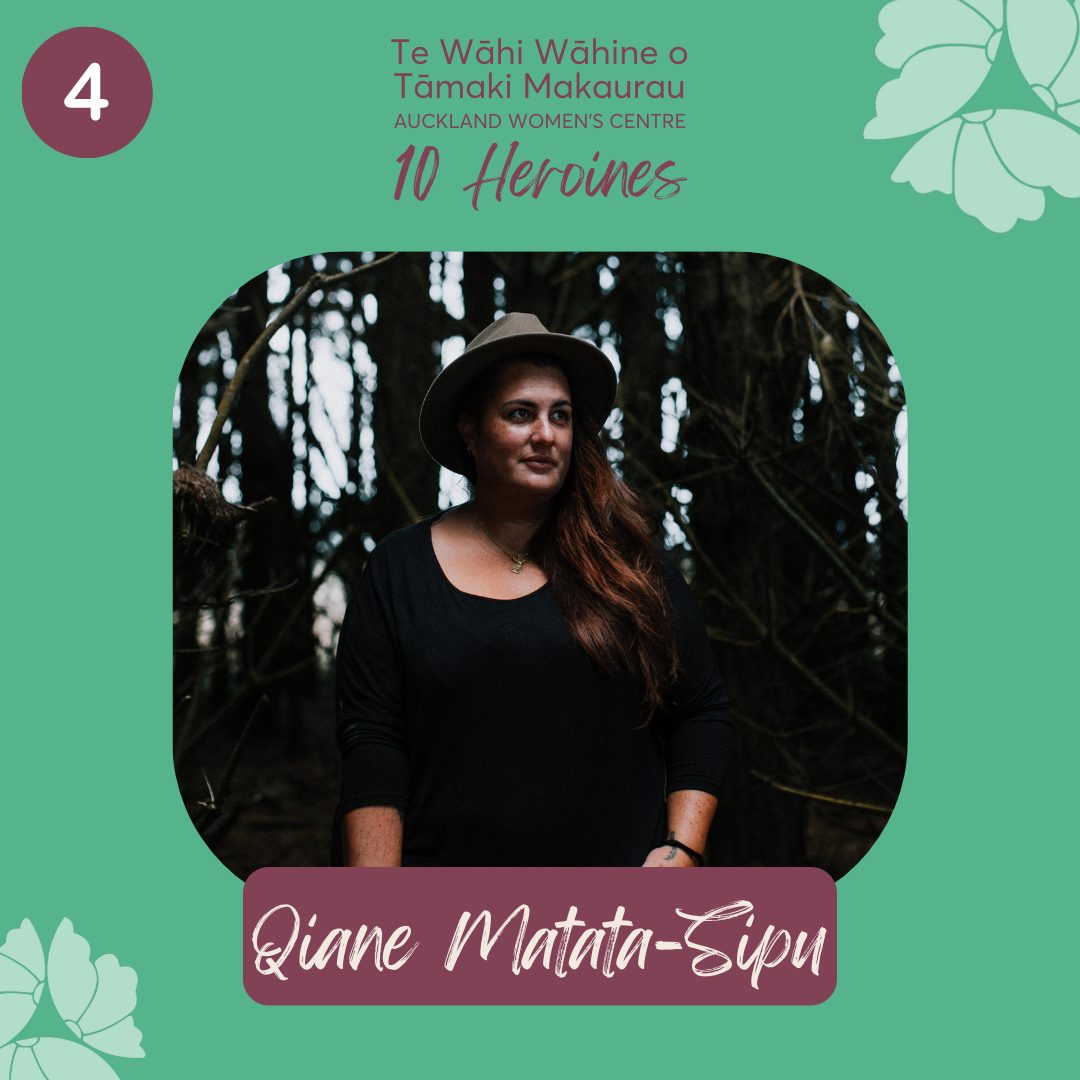
Qiane Matata-Sipu
“I hope indigenous wāhine really understand how powerful they actually are”
Visionary storyteller & photographer Qiane Matata-Sipu is our heroine for giving hope and joy by flipping hierarchies and proudly celebrating indigenous excellence. By showing diversities of success, her #NUKU100 project is “changing the narrative for and about kickass indigenous women” a far-sighted goal, which are nothing less than a cultural reset for Aotearoa New Zealand, and beyond, ensuring indigenous women step forward and are finally rightfully acknowledged.
And through grit, determination and artistic smarts, Qiane and her whānau successfully campaigned to save their whenua at Ihumātao from developers, against all odds. Tautoko!
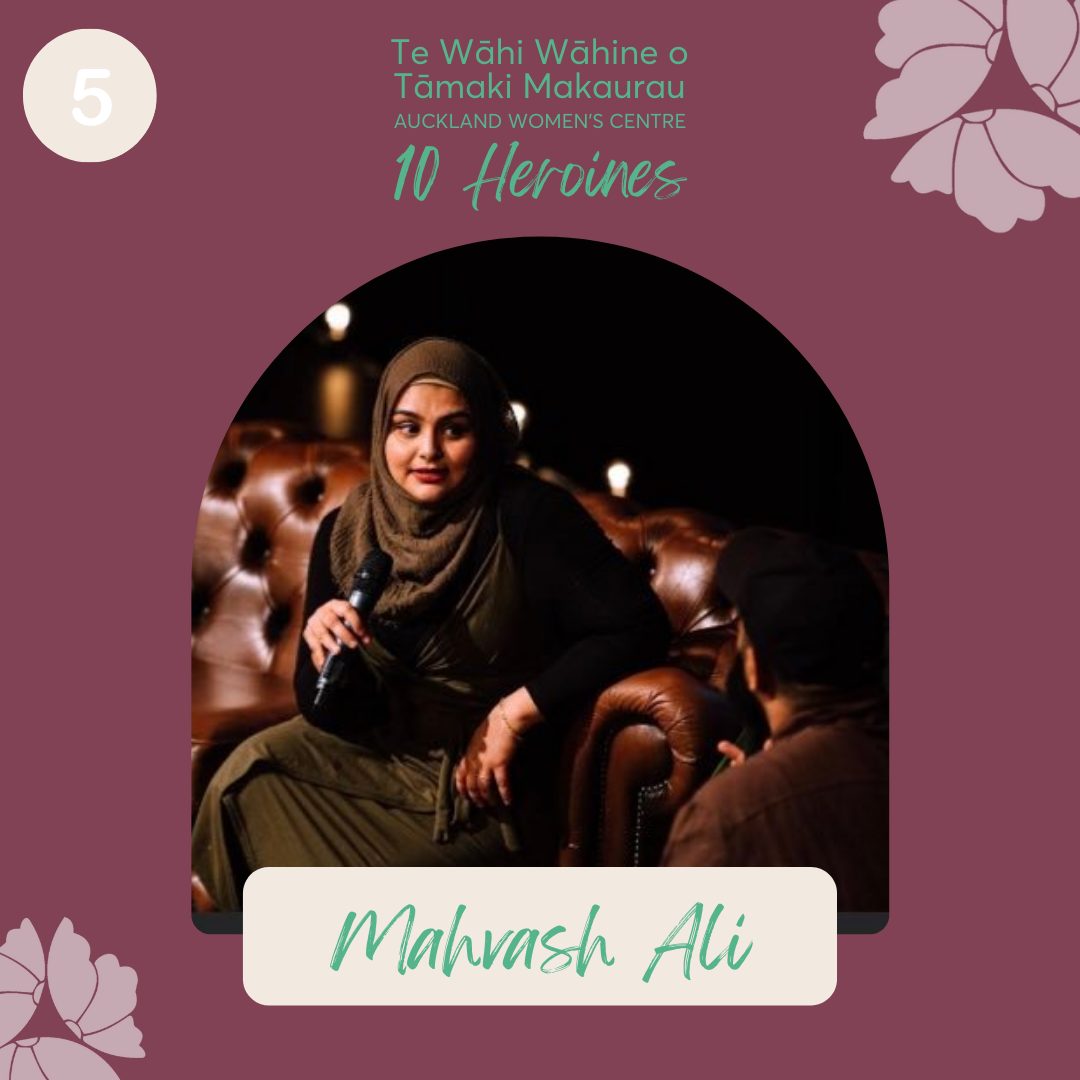
Mahvash Ali
“I want to leave you uncomfortable, because right now we all live in a world where ethnic cleansing, and words that reflect the idea of ethnic cleansing, are acceptable.”
Journalist Mahvash Ali is our heroine for irrepressibly challenging stereotypes, lazy thinking and intersectional sexism which – as a hijabi (a Muslim woman who choses to wear the hijab) – she sees all too often. A vivacious break-out star of the WWTM Muslim women forum in 2019, The Project current affairs producer and self-confessed coffee addict ensures people keep their eye on the real issues. In June this year, she wrote a thoughtful, important piece on a controversial counter-terrorism conference, reminding readers that “Women are agents of change. So let’s empower them…” LESSHGO!
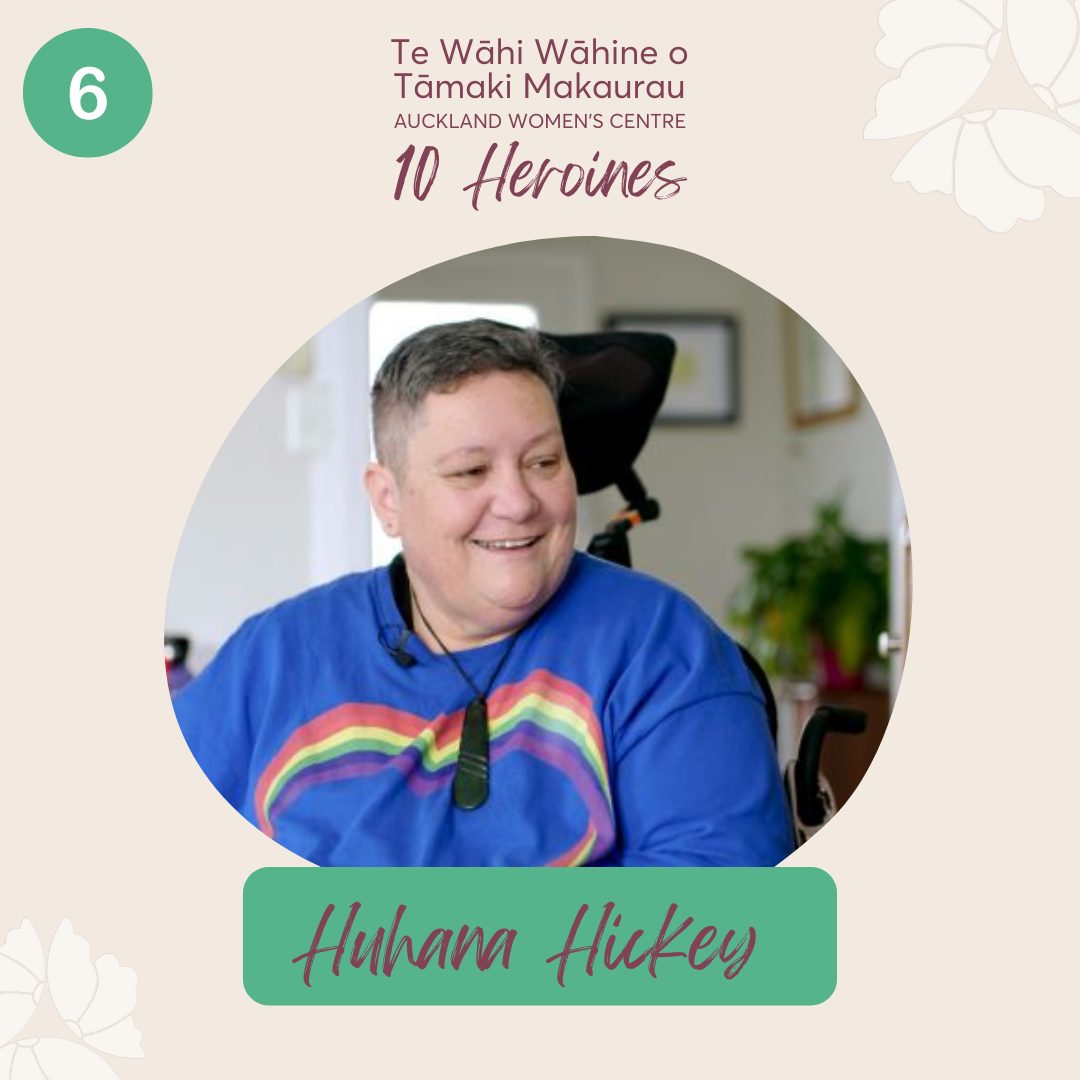
Huhana Hickey
“We need not to be afraid of activism… We’ve got to get stronger. Society has to pick up its game.”
| Activist and lawyer Dr Huhana Hickey – “Dr Hu” to her fellow sci-fi fans – is our heroine for fighting the social and financial barriers that our society throws up for people with disabilities. She served as the first openly disabled Housing NZ board member, and whether she’s petitioning for more institutional power for disabled people, serving on the Welfare Expert Advisory Group, or championing legalised medical cannabis (which helps with her own MS-related pain), Dr Hu always calls it as she sees it, pulls no punches and gets down to the nitty-gritty of what’s needed. Put Dr Hu in charge and the world would be a better place – for everyone. |
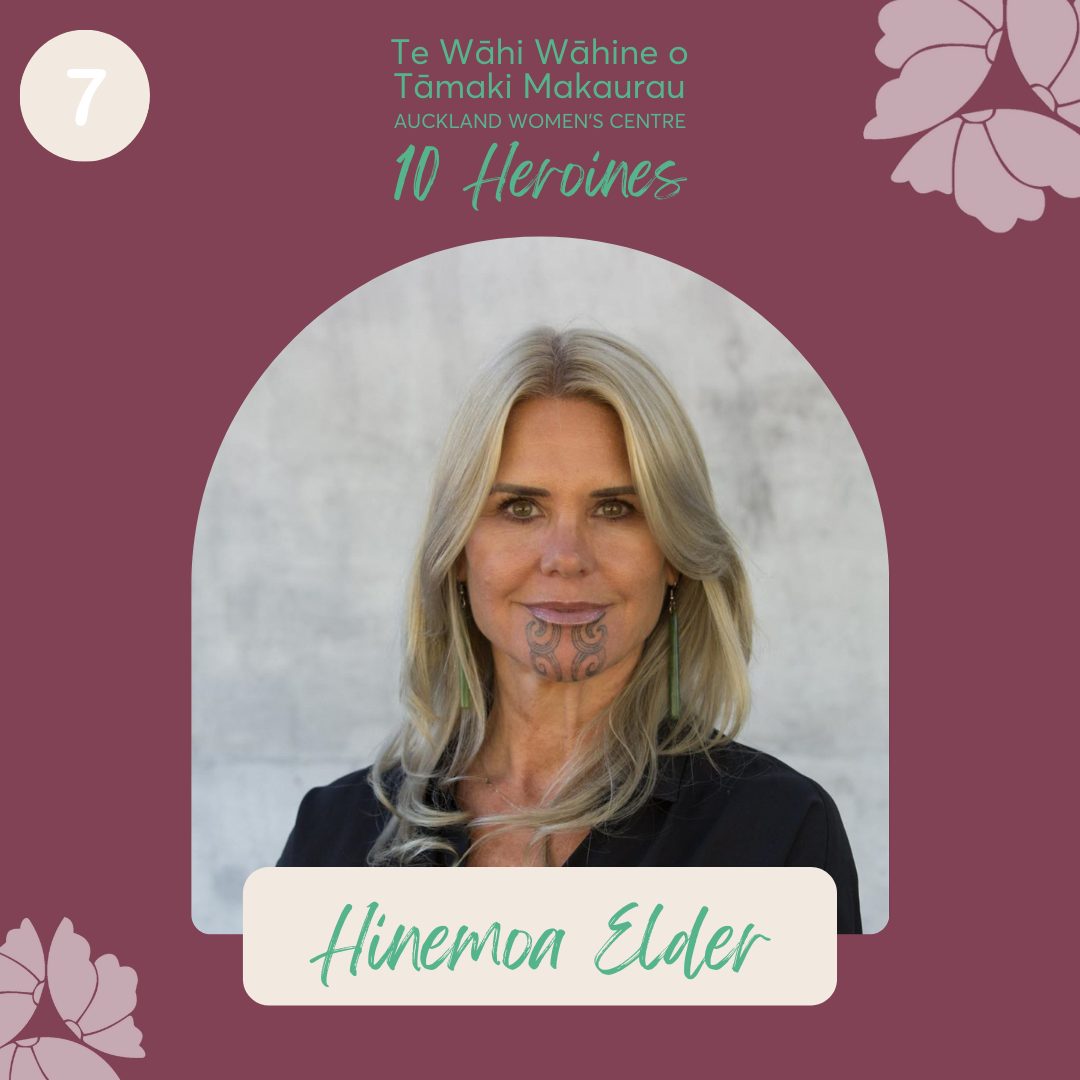
Hinemoa Elder
“Science alone isn’t going to save us… It is our stories, the meanings and the trust that telling those stories begins to build, that will inspire us do whatever it takes to restore our celestial waka, that is, Papatuanuku.”
| Psychiatrist, te reo champion, brain researcher and now climate advocate Dr Hinemoa Elder is our heroine for showing the strength of drawing on multiple knowledge systems at once, including mātauranga Māori, and her generosity in sharing her own journey as part of this holistic kaupapa. In health, she developed a tool that assists children and rangatahi recovering from traumatic brain injury by recognising the importance of cultural and whānau knowledges. And, as she explained in a WWTM kōrero last year, Indigenous people have a leading role to play in combating the climate emergency: contributing geographical knowledge, communication technology and aroha – “unashamed emotional caring energy.” |
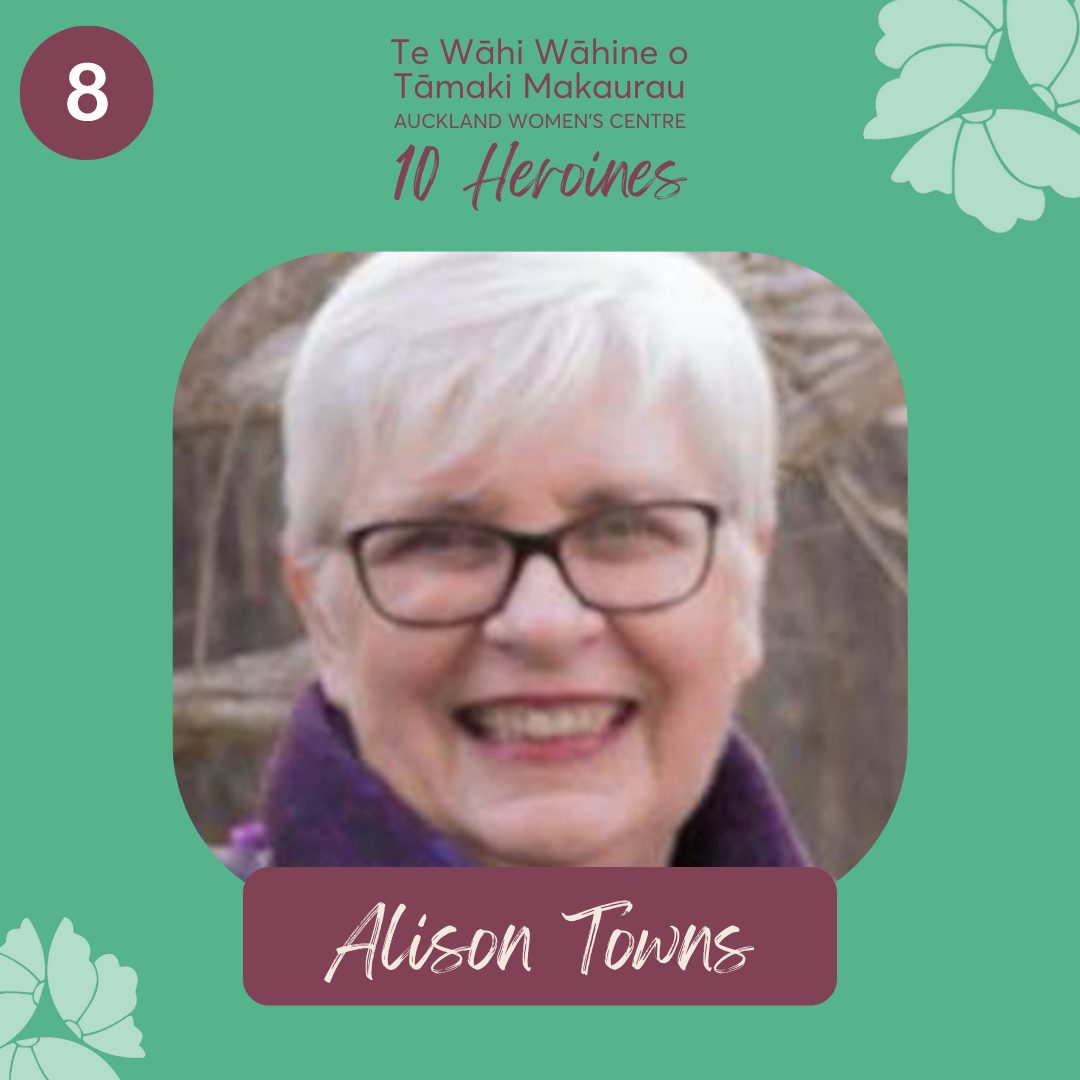
Alison Towns
“Victims of violence [having] to hide or suffer homelessness in order to ensure their safety from a family member runs counter to human rights and social justice expectations: that people have a right to be free from violence; that offenders should be held accountable; that victims of violence have a right to live in their homes”
Clinical psychologist Dr Alison Towns is our heroine for her superb research and advocacy in the important and difficult area of gender violence. Along with others, her advocacy was instrumental in encouraging Aotearoa NZ to pass a much-needed anti-strangulation law in 2018. She’s now advocating for better legal protection from stalking. We’re also incredibly grateful for her research demonstrating why gender equity is important to prevent violence, and how youth education can help to uncover “girlfriend ownership” practices informed by entertainment media.
Here at WWTM, we’re honoured and proud to work with Alison in the Coalition for the Safety of Women and Children. Thanks Alison!
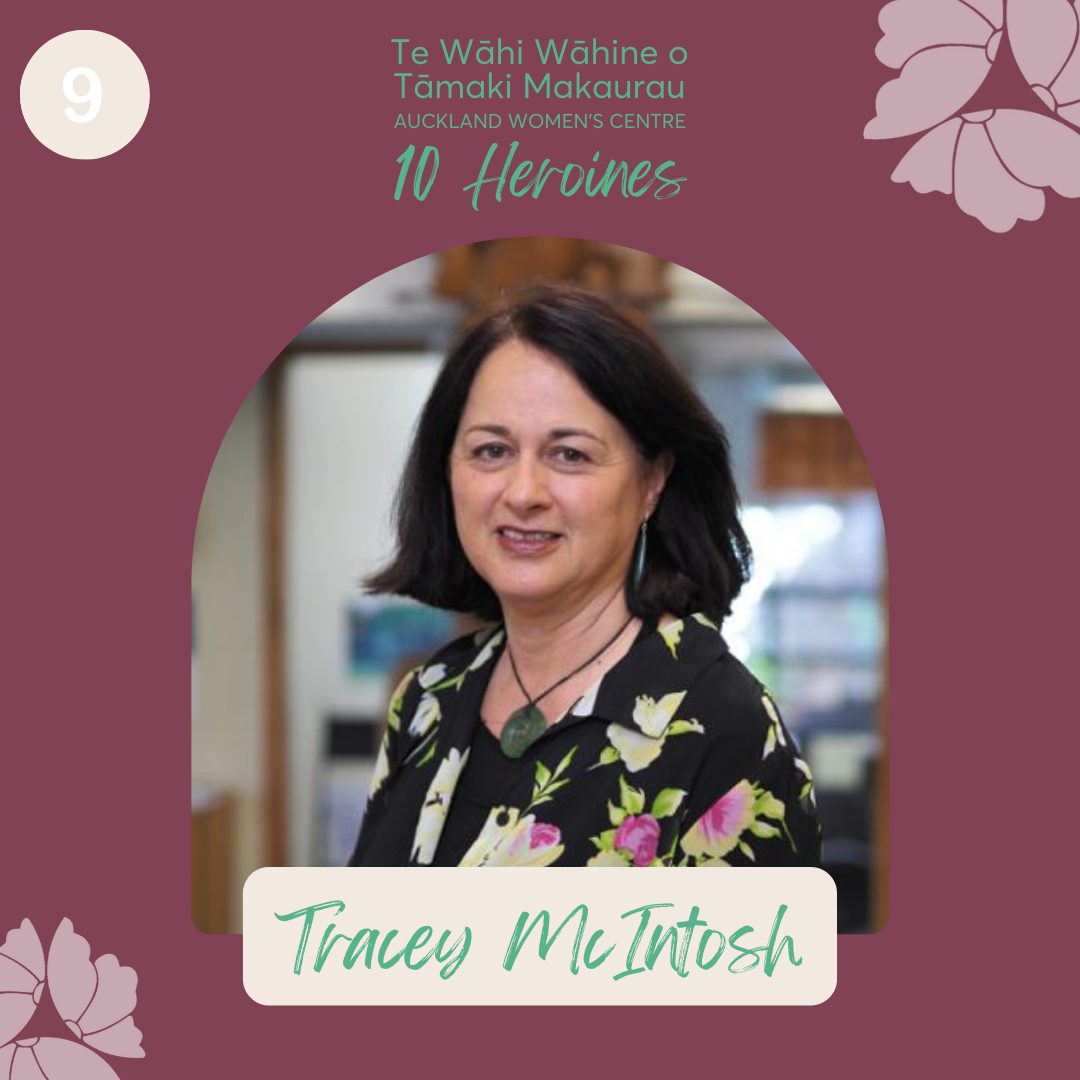
Tracey McIntosh
“Every positive social change in the history of humanity – whether it be the abolition of slavery, dismantling of apartheid, gay liberation, marriage equality – right up to the moment of change, people believed it couldn’t happen. Our work can create transformative change.”
Leading social scientist Professor Tracey McIntosh is our heroine for shining a light into the “care-to-custody pipeline” for women prisoners and for pointing to the structural and systemic causes of societal challenges – often, she says, the issue is “good people working in bad systems”. In her measured, matter-of-fact voice, she doesn’t shy away from stating difficult truths: “If harm is not to be repeated, we need to practice a profound level of radical honesty at state level and individual level.” Words to remember and act on.
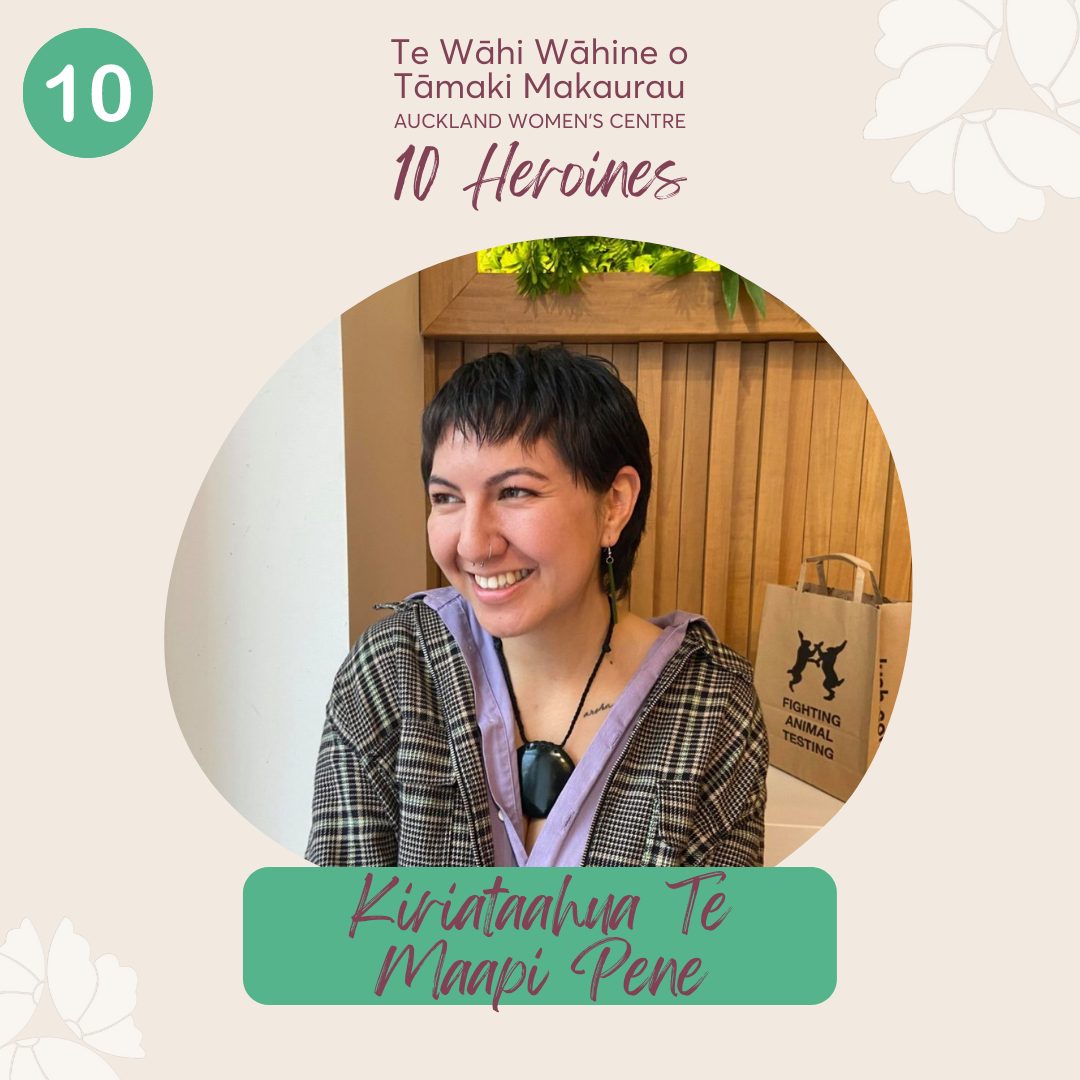
Kiriataahua Te Maapi Pene
“I te mutunga iho, ko te aroha te mea nui, aroha ki te atua, aroha ki te tangata, aroha ki te whenua, aroha ki te katoa. In the end, aroha is all that matters, aroha to spiritual connection, aroha to people connection, and aroha to connection with the land”
Our rangatahi coordinators Kiriataahua Te Maapi Pene and Gabriella Makerita Hinetū Brayne are our heroines for their manaakitanga and deep whakaaro in how they go about encouraging rangatahi wāhine to work together and support each other to bring about fantastic futures. We’re in awe of their achievements: Kiriataahua working as a youth worker for Rānui135 in her local community, and generously sharing about te ao Māori while teaching us te reo. Both Kiriaatahua and Gabriella also facilitate Tuia Te Papa wānanga with rangatahi for WWTM, with a focus on hauora and manaakitanga.
In everything they do, they lead with the values of tika, pono and aroha. They show the power of whakawhanaungatanga, of connection. Mīharo!
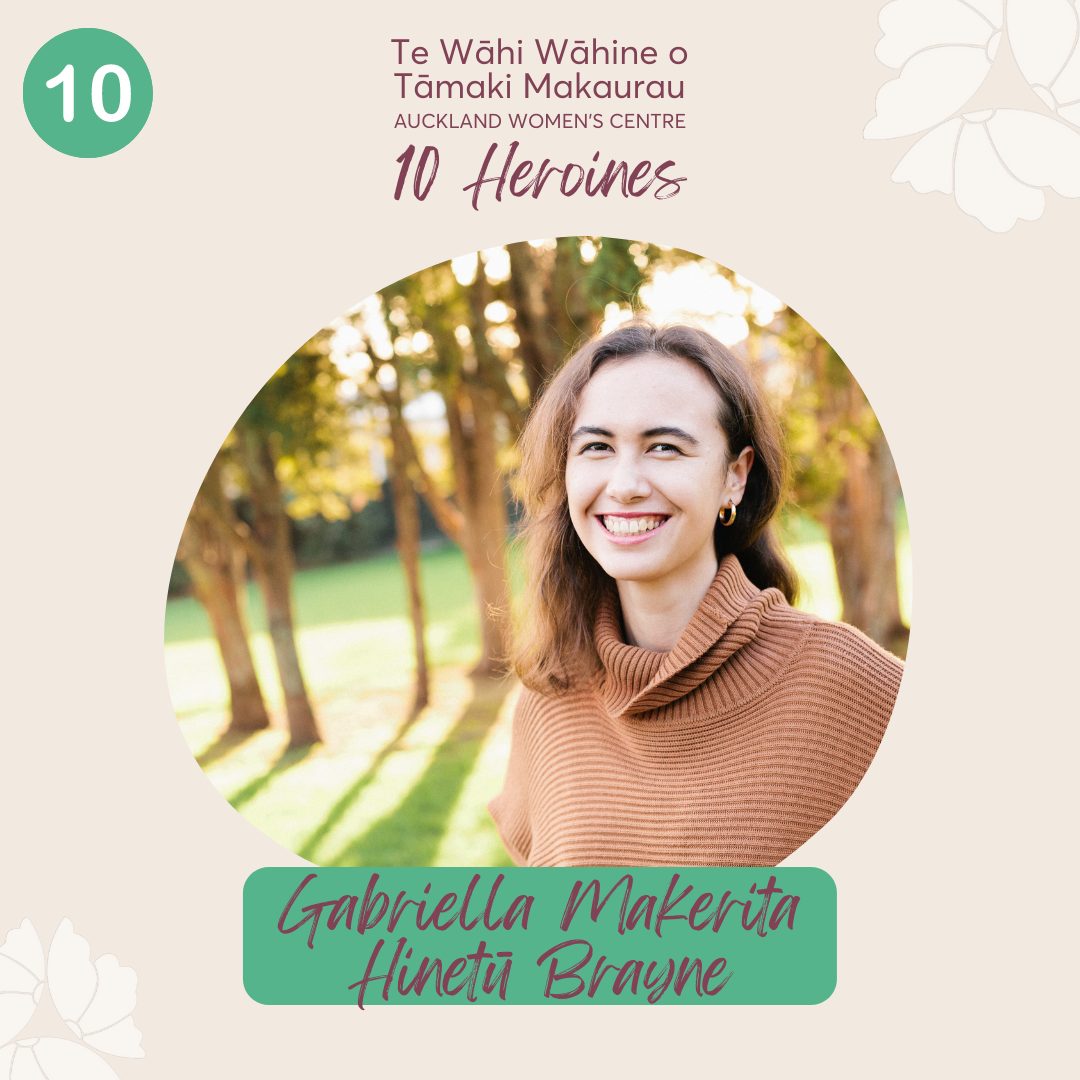
Gabriella Makerita Hinetū Brayne
“Violence prevention kaupapa must be centered in a greater fight for liberation against colonisation, capitalism, and carceral violence. As a rangatahi of Māori and Pasifika whakapapa, embracing Te Ao Māori and Te Ao Moana has been one of the most healing, restorative and empowering journeys. Whakapapa reminds us of the mana and mauri we carry; consent culture is about recognising our inherent dignity, sovereignty and aroha which connects us all."
Our rangatahi coordinators Kiriataahua Te Maapi Pene and Gabriella Makerita Hinetū Brayne are our heroines for their manaakitanga and deep whakaaro in how they go about encouraging rangatahi wāhine to work together and support each other to bring about fantastic futures. We’re in awe of their achievements: Gabriella keeping people safe and having fun at festivals through Consent Club, and supporting youth-led campaigns for reproductive justice. Both Kiriaatahua and Gabriella also facilitate Tuia Te Papa wānanga with rangatahi for WWTM, with a focus on hauora and manaakitanga.
In everything they do, they lead with the values of tika, pono and aroha. They show the power of whakawhanaungatanga, of connection. Mīharo!
